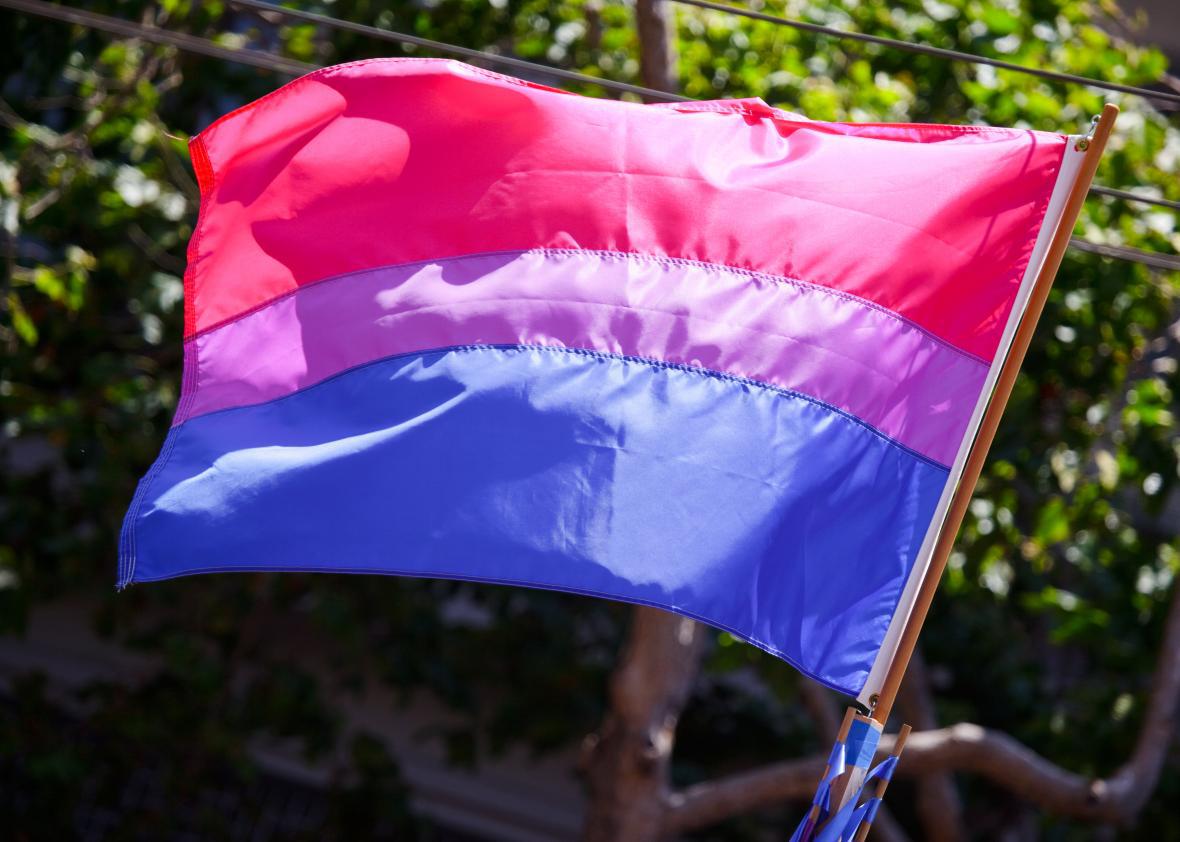The first piece I wrote that was ever published was titled, “I Came Out as Bisexual and Now Can’t Date Anyone Gay or Straight.” I wrote the piece for xoJane’s infamous “It Happened to Me” vertical, and much to my surprise, it went viral.
The piece wasn’t anything groundbreaking. It simply dispelled the trope that “it gets better” when you come out. After years of sleepless nights questioning my sexuality, blacked out unprotected sex with men, and feeling like a liar to every person I ever dated, I was excited about the prospect of finding love after embracing my (bi)sexuality. I was young, naive, and believed Woody Allen’s joke, “Bisexuality immediately doubles your chances for a date on Saturday night.”
That couldn’t have been further from the truth. Both gay men and straight women refused to date me for the stereotypes commonly believed about bisexuals: I’m actually gay; I’ll leave them for a person of another gender; I’m confused, greedy, incapable of being monogamous, and so on and so forth.
After the piece went viral, I was suddenly given a platform to keep writing about bisexuality, and I grabbed it with both hands. There was only one problem: I knew very little about identity, LGBTQ culture, or more specifically, bisexuality politics. All I knew is that my experience wasn’t as unique as I thought it was—the dozens upon dozens of emails I got after my piece went viral had made that abundantly clear. I wanted to increase bisexual visibility so these people could know they weren’t alone. But what I didn’t realize is that when it comes to the visibility of minority groups, depictions must always be positive even if that leaves out some unsavory truths.
For example, an editor of mine recently declined a piece, despite liking it, about a sexual encounter in which I was lied to about HIV status. He didn’t want to perpetuate serophobic stereotypes despite the reality of my situation. This is also why the gay community was up in arms about Logo’s Fire Island reality show, which featured shallow gay men obsessed with sex, partying, and drama. But if we’re being completely honest, we all know gay men who act exactly like those guys. They are petty, self-absorbed, and live for drama. This isn’t all of us, or even most of us, but I would say it’s a sizable minority of gay men. While Fire Island might not be the best depiction of gay culture, it’s a real one, and it deserves to be seen.
To be clear, I understand the concerns around airing dirty laundry. When a minority group has so little visibility in the mainstream media, it can feel imperative that all depictions be positive. And given rampant bi erasure, the stakes are even higher. But this paradigm has left me in a sticky wicket: I am a walking, breathing bisexual stereotype whose job is, apparently, dispelling bisexual stereotypes. I doubt I’ll ever be happy with just one partner. I currently do miss folks of other genders when I’m monogamously dating one person. I bareback more often than I should. I live for threesomes and would happily act as anyone’s unicorn—the more the merrier.
But this isn’t what many activists in the bisexual community want to hear. For instance, when I first started writing, I was part of a bisexual activism and writers group on Facebook. There, they would share my pieces on the group wall, and proceed to tear them a part for perpetuating negative stereotypes.
I vividly remember some of the ruthless comments I received for a fun puff piece titled, “7 White Lies Bisexuals Tell Before Coming Out.” Members commented that the title and whole premise of the piece perpetuated the notion that bisexuals are liars. But the truth is, many bisexual individuals do lie about their sexual orientation. In fact, as the Los Angeles Times pointed out, only 28 percent of bisexuals are out publicly. Now, this lying isn’t rooted in being duplicitous; rather, bisexuals tend to lie because they fear the many vicious stereotypes about being bisexual. Nevertheless, there was such anger at my admitting that yes, many bisexuals do lie about their sexual orientation. Some bisexual folks lie indefinitely and some, like my piece suggested, only tell white lies before coming out.
This criticism and the fear that I’m misrepresenting the bi community, actually doing it harm, has led to internal policing of my work. I’m always attempting to walk the fine line of positivity and reality, when the truth is, what’s real is never always positive.
But I’ve realized that like myself, many bisexual folks are slutty, want threesomes, and aren’t satisfied with dating a single person. I’m tired of hiding those aspects of my identity because they don’t neatly fit into the monogamous bisexual trope that’s prized in LGBTQ media. I think when it comes to visibility, there’s room for all of us. The good and the bad. The slutty and monogamous. Depicting bisexuals (or other minority groups) only positively, while leaving out the negatives of a certain culture, doesn’t actually do anyone a service. It neglects where we, as a community, can improve, and in some cases (like my own), it actually isolates those who don’t feel like they belong in their minority group.
At the end of the day, every community has its flaws, and the bisexual community is no exception. Better to present ourselves to the world in all our messiness than to imply that only the most PR-friendly of us deserve to have a voice.
